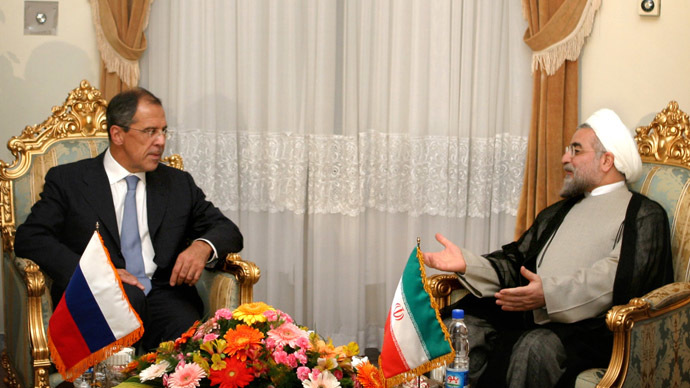Lavrov's Iran visit: Building on Geneva nuclear agreement

Russia’s Foreign Minister is on his first visit to Iran since President Rouhani took office. Consistent implementation of the key Geneva agreement on the Iranian nuclear program is paving the way to regional stability and international security.
The Geneva agreement on the Iranian nuclear program allows us to
address some of the most pressing concerns about the nature and
direction of Iran's nuclear activities. The Joint Action Plan,
adopted by the P5+1 and Iran, includes specific measures aimed at
enhancing transparency, to be undertaken in close cooperation
with the IAEA.
In parallel with the implementation of the first steps, the sides
are to continue the work on a final and comprehensive agreement.
It provides for full use of the inalienable rights of Iran as a
party to the Non-Proliferation Treaty. It also suggests a gradual
weakening of anti-Iranian sanctions regime.
The progress on the nuclear program will now depend on the
implementation of the Geneva agreement. We hope that all sides
will retain the constructive approach and demonstrate the
political will to enter the final negotiations aimed at the full
restoration of international confidence in the exclusively
peaceful nature of Iran's nuclear activities.
Russia has always been an advocate of a peaceful solution to the
Iranian nuclear problem. Our position has always been clear: a
negotiated diplomatic solution has no plausible alternative.
The Geneva agreement will undoubtedly have a positive impact on
the overall regional situation in the Middle East, including
promotion of a WMD-Free Zone and overcoming the dangerous trend
towards use of force and violence in the region. We hope to see
an improved atmosphere in the relations of Iran with its Arab
neighbors and Israel.
Iran can make a positive contribution to finding a solution to
the Syria crisis. In preparation for the international conference
on Syria, ‘the Geneva-2’, Russia believes that all states of
influence in the region, including Iran and Saudi Arabia, should
take part.
Yet the Russian-Iranian agenda goes far beyond the immediate
regional priorities. Preparations for the 2014 Caspian Summit,
cooperation on Afghanistan, including countering the drug threat,
and intense economic exchanges are among the many examples where
Moscow and Tehran can reach arrangements beneficial for both
sides, as well as for the wider international community.
The statements, views and opinions expressed in this column are solely those of the author and do not necessarily represent those of RT.
The statements, views and opinions expressed in this column are solely those of the author and do not necessarily represent those of RT.













